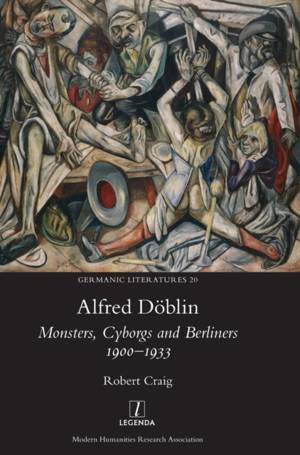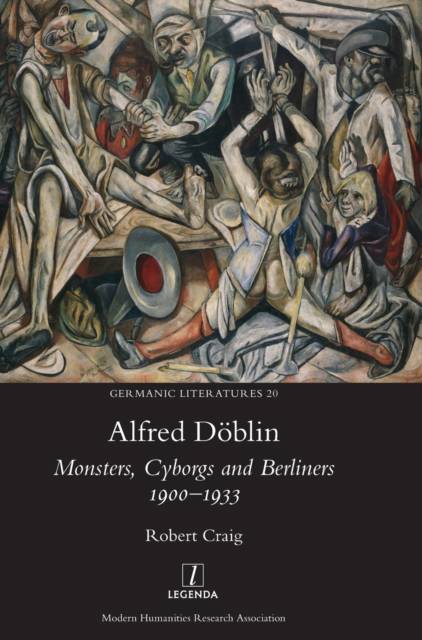
- Afhalen na 1 uur in een winkel met voorraad
- Gratis thuislevering in België vanaf € 30
- Ruim aanbod met 7 miljoen producten
- Afhalen na 1 uur in een winkel met voorraad
- Gratis thuislevering in België vanaf € 30
- Ruim aanbod met 7 miljoen producten
Omschrijving
'If you're satisfied with yourself, beware of Döblin.' It was with this temptation for brave souls that Günter Grass closed his tribute on the tenth anniversary of the great modernist's death. Alfred Döblin is best known for his city masterpiece of 1929, Berlin Alexanderplatz. But the journey to the 'Alex' takes us along pathways both less familiar and every bit as intriguing. In the decades before his flight into exile in 1933, this medical doctor-cum-writer broke new ground both as an Expressionist storyteller and an author of experimental historical and science fiction. Not only that, but he made radical contributions to poetics, aesthetics and nature philosophy. The focus of this innovative study, one of the first of its kind in English, is a thorny and intractable relationship that perennially fascinated Döblin: that of nature and the self. Robert Craig shows how his eclectic works before 1933 traced out an evolving dialectic between the human and the natural, and between the subject and its forms and modes of embodiment. The constellations that emerged remain as illuminating as they are unsettling and discomfiting.
Robert Craig teaches German and English literary and cultural studies at the Otto-Friedrich-Universität in Bamberg.
Specificaties
Betrokkenen
- Auteur(s):
- Uitgeverij:
Inhoud
- Aantal bladzijden:
- 218
- Taal:
- Engels
- Reeks:
- Reeksnummer:
- nr. 20
Eigenschappen
- Productcode (EAN):
- 9781781889268
- Verschijningsdatum:
- 30/08/2021
- Uitvoering:
- Hardcover
- Formaat:
- Genaaid
- Afmetingen:
- 170 mm x 244 mm
- Gewicht:
- 548 g

Alleen bij Standaard Boekhandel
Beoordelingen
We publiceren alleen reviews die voldoen aan de voorwaarden voor reviews. Bekijk onze voorwaarden voor reviews.











